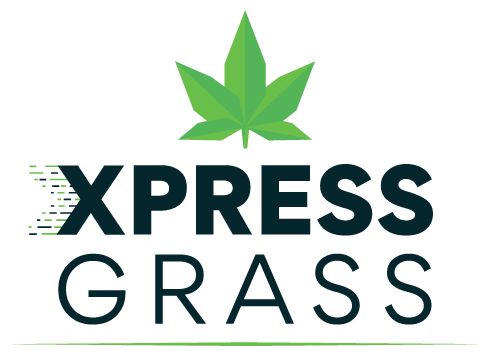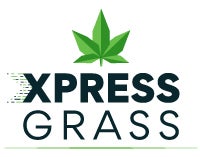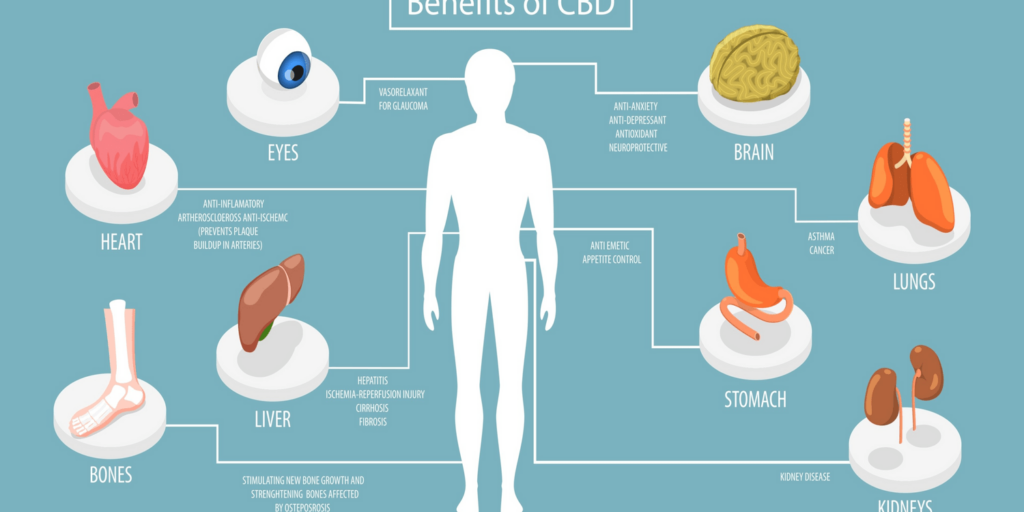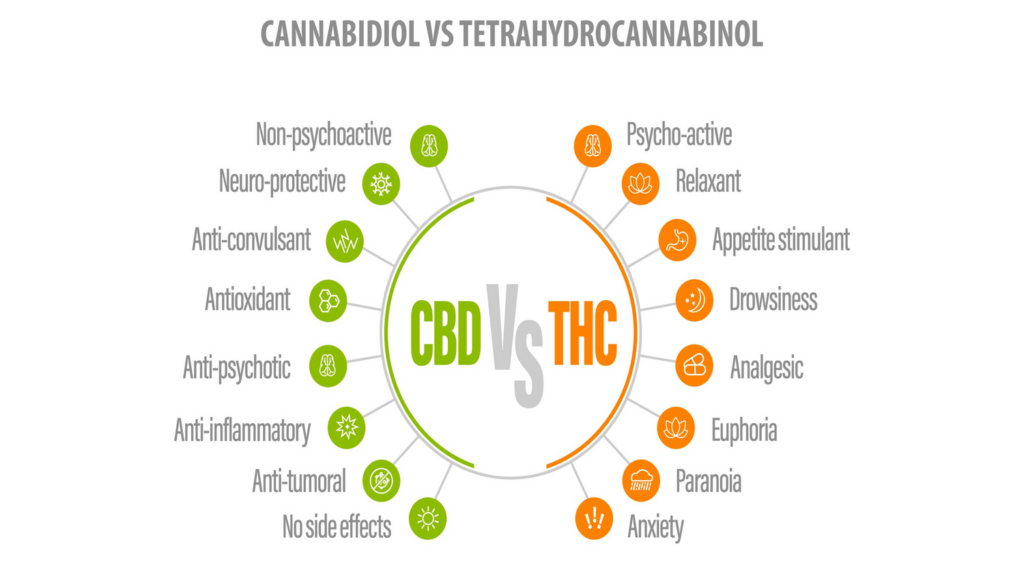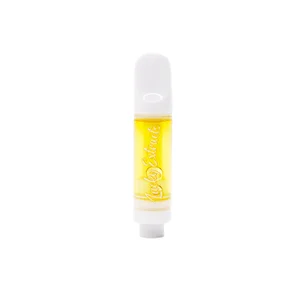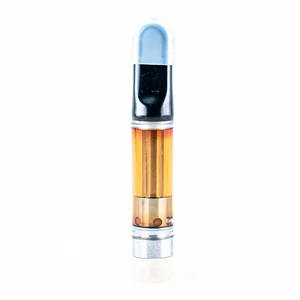CBD products come in a wide variety, from tinctures and salves to capsules and gummies. But if you’re curious about the health benefits of this substance or medical marijuana in general, you might be confused about the differences between CBD vs. THC, both of which are derived from the Cannabis sativa plant.
Both of these compounds are mentioned with cannabis, but they’re very different. While some users might prefer CBD over THC, we’re not here to debate. At XpressGrass, we care deeply about our customers and cannabis culture in Canada on both sides of the THC vs. CBD equation.
We believe in the value of education to help grow a shared passion for cannabis with our customers. That means clearing the fog around some of the terms that get thrown around without much explanation.
So instead of weighing CBD vs. THC against each other, let’s learn more about each of them first.
What are Cannabinoids in the Cannabis Sativa Plant?
Both CBD and THC are cannabinoids, which are naturally occurring compounds in cannabis plants, or Cannabis sativa. According to News Medical, one of the world’s leading open-access medical hubs since 2004, cannabis has at least 66 cannabinoids, and there are potentially many more just waiting to be found! Hemp-derived CBD products are legal if they contain less than 0.3% THC, but state laws and potential health interactions with medications can vary.
THC, or tetrahydrocannabinol, is the most abundant cannabinoid in the cannabis plant, while CBD, or cannabidiol, comes second. They’re both essential components of medical marijuana.
Origins of CBD and THC
Cannabidiol (CBD) and delta-9-tetrahydrocannabinol (THC) are two of the most well-known compounds found in cannabis plants, including both hemp and marijuana. The cannabis plant, scientifically known as Cannabis sativa, has been utilized for medicinal and recreational purposes for thousands of years.
Among the over 400 chemical compounds present in the cannabis plant, CBD and THC stand out due to their significant effects and prevalence. While THC is the most abundant compound, CBD follows closely as the second most prevalent. Both CBD and THC have played crucial roles in the plant’s long history of use, contributing to its diverse applications and benefits.
What’s the Difference Between CBD and THC?
CBD comes from the hemp plant, a variety of cannabis with less than 0.3% THC. Because the THC content is so low, hemp won’t get you high- even if you smoke it.
Hemp is one of the strongest natural fibres in the world, and manufacturers make a lot of commercial and industrial products using hemp, including clothing, textiles, rope, paper, food, and even biofuel. However, it’s important to note that THC can show up on a drug test for days or weeks after use, and some CBD products might contain THC, leading to false positives in drug tests.
THC, on the other hand, has psychoactive properties, which causes the altered state of mind that most people associate with smoking weed. Research has shown that both CBD and THC have potential effects on treating anxiety, with studies involving veterans with PTSD comparing their efficacy to placebos.
To keep the two straight, always remember the main factor that distinguishes them:
THC gets you high. CBD does not.
Chemical Structure and Psychoactive Properties
CBD and THC share a similar chemical structure, each composed of 21 carbon atoms, 30 hydrogen atoms, and 2 oxygen atoms. However, the arrangement of these atoms differs, leading to distinct psychoactive properties. THC is the primary psychoactive ingredient in cannabis, responsible for the “high” feeling associated with marijuana use.
In contrast, CBD is non-psychoactive and does not produce a “high.” The difference in their effects is due to how they interact with the body’s endocannabinoid system. THC binds to cannabinoid 1 (CB1) receptors in the brain, while CBD primarily interacts with cannabinoid 2 (CB2) receptors in the body, resulting in different physiological responses.
Effects of CBD and THC on the Body
The effects of CBD and THC on the body are notably different. THC stimulates the brain’s reward system, releasing dopamine and creating a feeling of euphoria. This is why THC is often associated with the psychoactive effects of cannabis. On the other hand, CBD has a more subtle impact, known for its ability to reduce inflammation and alleviate anxiety symptoms.
Both CBD and THC can interact with other medications, such as blood thinners and antidepressants, potentially causing side effects like drowsiness, dry mouth, and changes in appetite. Understanding these differences can help users make informed choices about which compound might best suit their needs.
CBD vs. THC: Which is Legal?
Both THC and CBD are legal under Canadian law, although different provinces or territories might have their own restrictions. Under the U.S. Controlled Substances Act, however, THC remains a controlled substance, complicating the regulatory landscape for consumers.
The Cannabis Act states that adults 18 or older can legally possess up to 30 g of cannabis (dried or fresh) in public. At XpressGrass, we deliver to any Canadian who is at least 19. Despite varying state laws, both THC and marijuana-derived CBD are illegal under federal law in the U.S., adding another layer of complexity.
You can’t smoke anywhere you want, but Ontario, Alberta, and British Columbia allow people to smoke cannabis wherever they can smoke cigarettes. Other places, like Halifax, have official Designated Smoking Areas.
Is CBD the Same Thing as Medical Marijuana?
No, but CBD is an essential component of medical marijuana nonetheless. Medical cannabis is often distinguished from recreational cannabis due to its specific medical benefits and the effects of cannabinoids like CBD and THC.
Technically, medical marijuana is the same as recreational marijuana. The only difference is the purpose you’re taking it- medical vs. recreational use. State medical cannabis laws regulate the use of medical marijuana across different states, impacting its accessibility and legal status.
If you feel self-conscious about smoking, even for medical reasons, we at XpressGrass can help. We carry a wide array of cannabis products, including tinctures, capsules, gummies, and vapes.
They contain different strengths of CBD, THC, or a combination of the two, so you can
get discreet relief without the smell of weed smoke.
Benefits of CBD
Although the research into its benefits is ongoing, authorities such as Harvard Medical School note that CBD may be used to manage a variety of medical conditions and symptoms, including:
- Anxiety
- Insomnia
- Post-traumatic stress disorder (PTSD)
- Chronic pain
- Arthritis and inflammation
- Muscle tension
- Pediatric epilepsy conditions, such as Dravet syndrome and Lennox-Gastaut syndrome
- Multiple sclerosis
- Crohn’s disease
- Opioid withdrawal
- Vomiting and nausea related to chemotherapy
The mental health services administration plays a crucial role in overseeing and addressing mental health issues that may arise from substance use, including the use of CBD.
CBD has shown some promise in treating skin conditions like eczema and is often added to nourishing moisturizers and topicals.
CBD also has many advantages for our pets as it can benefit them in much the same way it helps us because, much like us, our pets also have an endocannabinoid system that interacts with CBD in similar ways. That’s why there are so many great products with CBD for cats and dogs– just be careful to read the instructions and give them the right dose. Since we’re a lot bigger than our furry friends, a human-sized dose would probably be too much for your dog.
For cannabis consumers, a product with CBD or cannabidiol can lower some of the unpleasant potential side effects of THC.
So, are there any drawbacks to CBD? Research conducted by the World Health Organization associates no risks of dependence or substance abuse with CBD.
CBD does have some side effects, including fatigue, nausea, and irritability. Also, consult your doctor before using CBD if you’re on medication, as CBD can affect your response to some of them. For example, CBD can prolong the effects of blood thinners.
Other medical experts advise against smoking cannabis during pregnancy, as it’s been linked to lower infant birth weights.
Benefits of THC
While some people might say that getting high is THC’s greatest benefit, it has medical benefits, too. THC has been found effective in helping patients relieve the following:
- Nausea
- Insomnia
- Loss of appetite
- muscle spasticity
However, it is important to note that THC can also contribute to drug abuse, as highlighted by the National Institute on Drug Abuse, which discusses its addictive properties and potential to trigger cannabis use disorders.
For those seeking a high, we at XpressGrass find that for most cannabis consumers, between 10 to 25 mg of THC is a good “euphoric zone.”
Many patients find that a combination of CBD and THC is the best way to relieve their symptoms or conditions.
FDA-Approved Medications
The FDA has recognized the therapeutic potential of both CBD and THC, approving several medications that contain these compounds. Epidiolex, a prescription medication containing CBD, is used to treat certain types of seizures, particularly in pediatric epilepsy conditions.
Marinol and Syndros, synthetic formulations of THC, are prescribed to manage nausea and vomiting caused by chemotherapy and to stimulate appetite in individuals with AIDS or anorexia. These medications are available by prescription only and are regulated under federal and state laws concerning controlled substances. Their approval underscores the medical community’s acknowledgment of the benefits of CBD and THC.
Can I Buy CBD Without THC?
Absolutely. We sell a variety of CBD products that are THC-free.
It’s important to understand the relationship between THC and CBD. THC CBD products highlight the differences in their effects, consumption methods, and potential medical benefits.
For instance, our vegan CBD capsules contain only CBD isolate and coconut oil. These capsules are an effective CBD treatment option for anxiety, inflammation, and chronic pains. Select from dosages of 10 mg, 20 mg, or 50 mg.
We also have a wide selection of CBD edibles, such as CBD Gummies, which are infused with either 100 mg or 300 mg of CBD per pack, and come in tasty gummy flavours such as Mint Leaves, Sour Watermelon, and Vegan Peaches.
We’ve also got CBD tinctures, such as one from Cannalife Botanicals, available in 120 mg and 350 mg for $32 to $95.
For topical use, try HempRéal Rejuvenating Miracle Cream or Revitalizing Skin Cream, which is manufactured in Montreal. Their combination of CBD, hemp seed oil, collagen, elastin, vitamins, and other nourishing ingredients improves skin’s moisture levels and elasticity while diminishing signs of ageing.
Where Can I Buy Cannabidiol?
You can buy cannabidiol from an online dispensary such as XpressGrass, where our cannabis products have been lab-tested and personally.
It’s important to note that under federal law, both THC and marijuana-derived CBD are classified under the U.S. Controlled Substances Act, making them illegal despite varying state laws.
At XpressGrass, all of our cannabis products at minimum test in the top 85th percentile, so you can be sure of buying safe, high-quality products—and at affordable prices.
We love being one of Canada’s best values for hooking up your buds. Our flat-rate shipping throughout Canada is $15, but we offer free shipping on orders of more than $150. Score 10% savings on your first order by setting up an account with us. Plus, when you refer a friend to XpressGrass, you’ll get $25 on us toward your next purchase.
If you have questions about CBD vs. THC or want recommendations from our knowledgeable staff, we’re glad to help. Just click on “Contact” and send us an email today.
Precautions and Warnings
While CBD and THC offer various health benefits, they can also have serious side effects and interact with other medications. It is crucial to consult with a healthcare provider before using CBD or THC products, especially if you have a medical condition or are taking other medications.
Both compounds can cause false positive results on drug tests and may lead to dependence and addiction. Pregnant or breastfeeding women should avoid using CBD and THC products, and children and teenagers should only use them under medical supervision. Additionally, older adults should seek advice from a healthcare provider before incorporating CBD or THC into their regimen to ensure safe and effective use.
